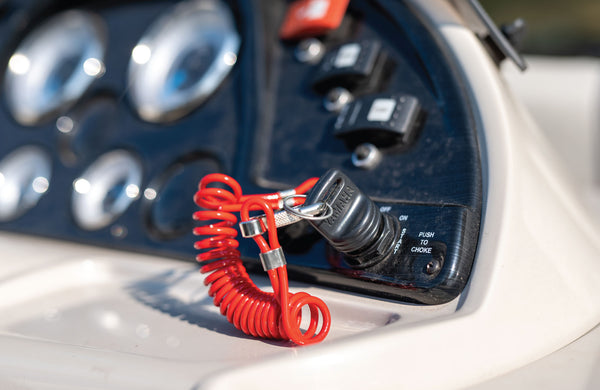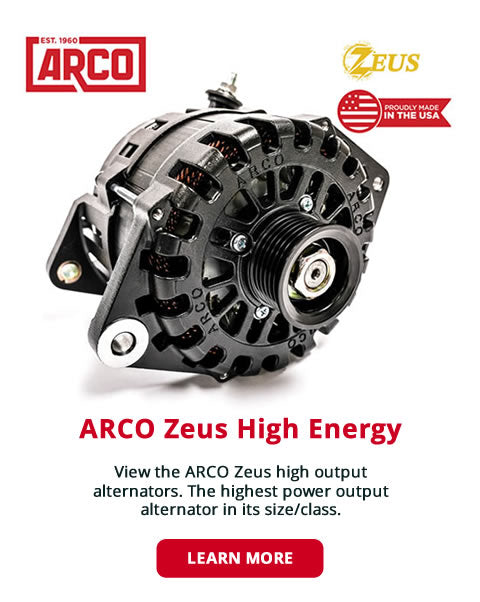
How do I know if my boat starter is bad? (And What To Do About It)
Are you trying to find out if the starter is the reason why your boat engine will not start?
Boating is a popular cure for stress and has been proven to help people relax, but it can quickly turn frustrating when your boat engine won't start. Here at ARCO, we have been manufacturing high-quality replacing starters, motors, and alternators for boats since 1960 years. We have seen and heard of every situation of a starter going bad, whether it is due to user error, manufacturing, or simply age. In this article, we'll discuss how to identify if your starter is the reason why your boat engine won't start and what steps you can take to fix the issue.
Why Is Your Boat Engine Not Starting? (Most Common Reasons)
Before we dive into how to identify a faulty starter, let's first understand why your boat engine may not be starting in the first place. Some common reasons other than a starter issue for a boat engine not starting include:
- Dead battery and/or loose battery clamps – Batteries cause more trouble than any other component in a marine electrical system.
- Fuel issues – This one seems simple, but do you have enough fuel to start your engine?
- Ignition problems – The best way to avoid ignition problems is to regularly inspect and replace the spark plugs, ignition coil, distributor, and rotor and cap.
- High Resistance – This is common with marine electrical systems. Corrosion, undersized wire, or bad connections will cause low voltage to the electrical components. Be sure to check for voltage drops.
- Loose Connections -Be sure to check all the terminals and connections and make sure they are clean and tight.
While all of these issues can cause your boat engine to not start, a faulty starter is often the most overlooked and difficult to diagnose. Let's explore how to identify if your starter is the reason why your boat engine won't start.
Signs of a Faulty Marine Starter
Clicking Noise
One of the most common signs of a faulty starter is a clicking noise when you turn the key in the ignition. This clicking noise is the sound of the starter solenoid trying to engage the starter motor, but failing to do so. If you hear a clicking noise when trying to start your boat engine, it's a good indication that your starter may be the issue.
Grinding Noise
Another sign of a faulty starter is a grinding noise when you try to start your boat engine. This grinding noise is caused by the starter gear not properly engaging with the flywheel. If you hear a grinding noise when trying to start your boat engine, it's important to address the issue as soon as possible to avoid further damage to your engine.
No Noise at All
In some cases, a faulty starter may not make any noise at all when you try to start your boat engine. This can be caused by a complete failure of the starter motor or a loose connection between the starter and the battery. If you turn the key and there is no noise at all, it's likely that your starter is the issue.
Troubleshooting Your Starter
If you suspect that your starter is the reason why your boat engine won't start, there are a few steps you can take to troubleshoot the issue.
Check the Connections
The first step is to check the connections between the starter and the battery. Make sure that all connections are tight and free of corrosion. If you notice any corrosion, clean it off with a wire brush and reconnect the cables.
Test the Battery
A dead battery can also cause your boat engine to not start. Use a multimeter to test the voltage of your battery. If the voltage is low, it may be time to replace your battery.
Inspect the Starter
If the connections and battery are not the issue, it's time to inspect the starter itself. Start by visually inspecting the starter for any signs of damage or wear. If you notice any damage, it's likely that your starter needs to be replaced.
Test the Starter
To test the starter, you will need a voltmeter. Connect the voltmeter to the starter and have someone turn the key in the ignition. If the voltmeter reads 12 volts or more, the starter is receiving power and the issue may lie elsewhere. If the voltmeter reads less than 12 volts, the starter is not receiving enough power and may need to be replaced.
Replacing Your Starter
If you have determined that your starter is the reason why your boat engine won't start, it's time to replace it. Here's a step-by-step guide on how to replace your boat engine starter:
- Disconnect the battery: Before starting any work on your boat engine, it's important to disconnect the battery to avoid any electrical shocks.
- Locate the starter: The starter is typically located near the bottom of the engine, adjacent to the flywheel.
- Remove the starter: Using a socket wrench, remove the bolts that hold the starter in place. Carefully remove the starter from the engine.
- Install the new starter: Place the new starter in the same position as the old one and secure it with the bolts.
- Reconnect the battery: Once the new starter is installed, reconnect the battery and test the engine to ensure it starts properly.
(Note: If you would like professional help in installing a new starter, you can find a dealer close to you through our ARCO dealer locator here.)
Preventing Starter Issues
While a faulty starter can be a frustrating issue to deal with, there are steps you can take to prevent it from happening in the future. Here are some tips for maintaining your boat engine and preventing starter issues:
- Regularly clean and inspect the connections between the starter and the battery to prevent corrosion.
- Keep your battery charged and replace it when necessary.
- Have your boat engine serviced regularly to catch any potential issues before they become major problems.
- Use high-quality fuel to avoid any fuel-related issues that can affect your boat engine's performance.

Conclusion
A faulty starter can be a major headache for boat owners, but with the right knowledge and troubleshooting steps, you can quickly identify the issue and take steps to fixing it. By regularly maintaining your boat engine and addressing any issues as soon as they arise, you can lower your chances of starter issues and keep your boat running smoothly.
If you're still having trouble identifying the reason why your boat engine won't start, you can find an ARCO dealer/installer through our dealer locator here. Dealers and installers have full access to ARCO representatives, because not only do we manufacture and supply high-quality starters, but we provide the industry’s best technical support. You can learn more at https://arcomarine.com/pages/about.

